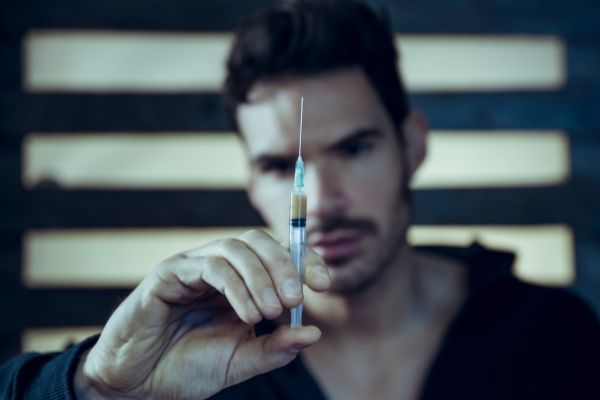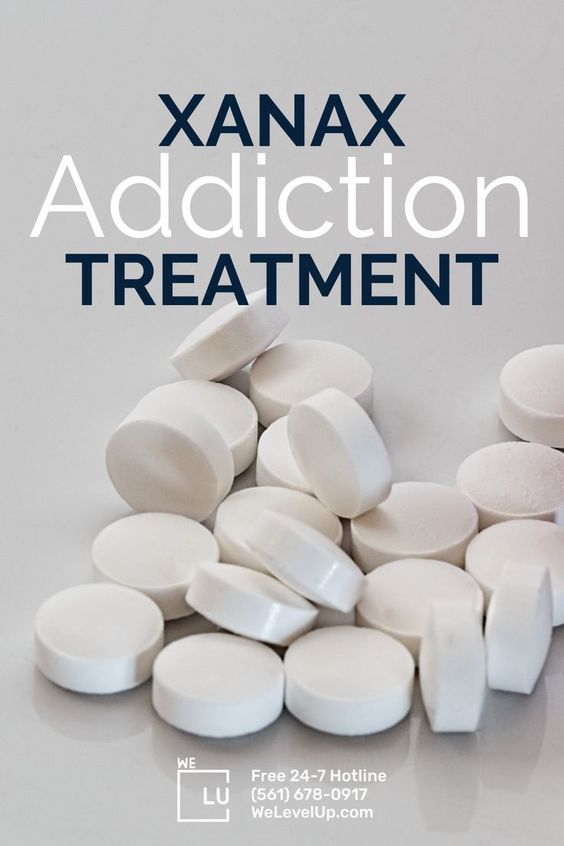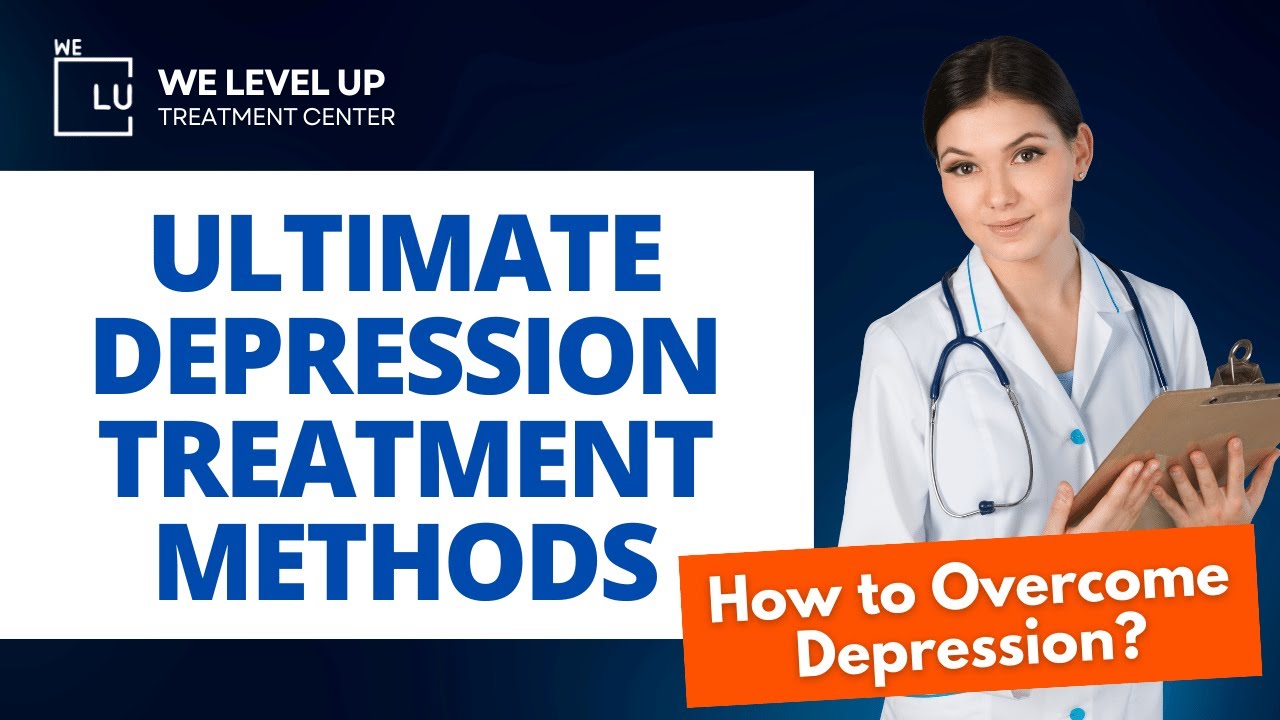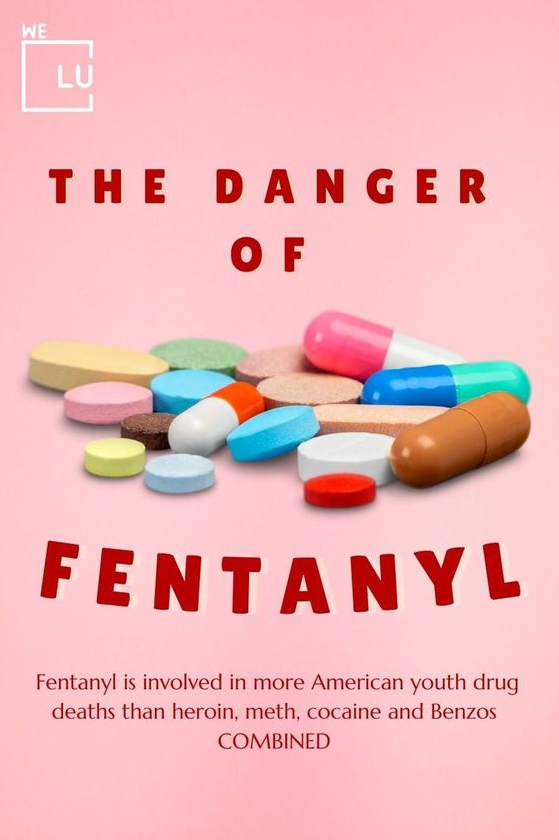Many Americans are familiar with methamphetamine, either through media, news, or personal experiences. However, what often remains unnoticed is the distinct separation between the “old” meth and P2P meth, quietly driving a new crisis of addiction, mental health issues, and homelessness.
While discussions around drugs, addiction, and treatment predominantly focus on the opioid epidemic, the revival of methamphetamine as a harmful substance has received minimal attention. It’s causing widespread harm in areas and at levels not previously witnessed, warranting a closer examination.
Methamphetamine has existed for decades and isn’t a trendy new recreational drug revitalized by innovative delivery methods. Yet, data and on-ground reports reveal an undeniable and creeping increase. What’s fueling this rise? What sets P2P meth apart from its predecessor, making it distinctly dangerous?
If you or someone you know is suffering from a P2P Meth addiction, the We Level Up Treatment Centers can help. Speak with our hotline specialists and discover the support and professional-accredited addiction treatment programs we offer.
What Is P2P Meth?
Super meth, also known as P2P drugs, is a modified form of standard methamphetamine. Cartels employ a different precursor in creating this drug, utilizing phenyl-2-propanone. This alteration leads to a more powerful, cost-effective, and readily available version of methamphetamine.
What Does P2P Mean?
“P2P” stands for phenyl-2-propanone. It’s a chemical compound used as a precursor in the production of methamphetamine, specifically in the creation of a type of meth known as “super meth.”
History and Origins of P2P Super Meth
Methamphetamine manufacturing has a century-long history, with varied production methods over the years. However, from the 1980s to 2005, the primary process relied on ephedrine or pseudoephedrine as precursors.
In 2006, the enactment of the Combat Methamphetamine Epidemic Act led to stringent restrictions on purchasing ephedrine and pseudoephedrine. Consequently, numerous U.S. meth labs were shut down. Nonetheless, Mexican super meth labs revitalized an old method that used a different precursor.
Economical Yet Simple
The chemical simplicity of phenyl-2-propanone facilitates various production methods for this illicit drug. The ingredients required for super meth are both inexpensive and easily accessible, making a 50% yield of P2P (producing 500mL per 1kg of phenylacetic acid) a cost-effective ratio. Other techniques can yield as high as 90%, involving minimal heat and no specialized equipment for the chemical reaction.
Rampant Expansion and Potency
Super meth has increased throughout the market rapidly. According to the DEA, P2P meth was present in 96% of their samples by 2012, a mere six years after ephedrine restrictions were implemented. Seizures at the U.S.-Mexico border have surged exponentially, escalating from a mere 50 pounds in 1998 to nearly 131,000 pounds in 2022. The Mexican cartels operating super meth labs have witnessed soaring profits, flooding the market with P2P meth to drive down market values and dismantle smaller meth labs across the United States.
What’s The Difference Between P2P Meth and Normal Meth?
Methamphetamine consists of two separate chemical variants: d-methamphetamine and l-methamphetamine. The d-meth provides the euphoric high, while l-methamphetamine tends to raise the heart rate without producing the high associated with d-meth.
Elevated Potency and Purity
Recent seizures of P2P meth reveal a near-absence of l-methamphetamine, resulting in a purity level of up to 93% (surging from a 39% average in 2008). This higher purity level makes P2P meth extremely potent, leading to intensified and prolonged highs that last up to 24 hours with just one dose. Law enforcement agencies and the DEA have noticed an alarming rise in overdose deaths attributed to super meth, surpassing those linked to ephedrine-based meth. Moreover, it is significantly more addictive than its precursor, offering stronger and quicker highs.
Heightened Risk of Health Effects
Super meth’s intense potency is coupled with severe physical and mental effects. Users may experience increased blood pressure, accelerated respiratory rate, elevated body temperature, and a heightened risk of heart attacks or strokes.
Unlike earlier meth versions, the reduced presence of l-methamphetamine in P2P meth eliminates early physical signs of overdose, such as heightened heart rate. Consequently, overdose incidents are escalating nationwide.
Long-lasting and Severe Impact
The physical and mental repercussions of super meth can be long-lasting and, in some cases, permanent. Users may endure organ stress and potential failure, accompanied by episodes of paranoia, psychosis, hallucinations (often reporting sensations of bugs crawling under the skin), and memory impairment.

Skip To:
Learn More:
Meth P2P vs Traditional Methamphetamine
| Meth drug type | 2P2 Meth | Other Forms of Methamphetamine |
| Precursor ingredients | Phenyl-2-propanone (P2P) | Ephedrine or pseudoephedrine |
| How its made | Home-brewed in small-scale labs | Produced in larger-scale labs |
| Production process | Uses more dangerous and volatile chemicals | Uses safer and more controlled methods |
| Purity | Usually impure due to inexperienced production methods | Can be purer and more consistent |
| Effects | Known physical health problems, brain damage, and dental decay | Similar effects as P2P meth, but may be less damaging to the body |
| Criminality | It can be purer and more consistent | Illegal large-scale production can result in widespread environmental contamination |
Get Help. Get Better. Get Your Life Back.
Searching for Accredited Drug and Alcohol Rehab Centers Near You? We Level Up Texas Is Opening Soon!
Even if you have failed previously and relapsed, or are in the middle of a difficult crisis, we stand ready to support you. Our trusted behavioral health specialists will not give up on you. When you feel ready or just want someone to speak to about therapy alternatives to change your life call us. Even if we cannot assist you, we will lead you to wherever you can get support. There is no obligation. Call our network hotline today.
FREE Addiction Hotline – Call 24/7
Side Effects of Super Meth P2P
Super methamphetamine, created using phenyl-2-propanone, presents a host of severe physical and psychological side effects. Here’s an overview of the possible consequences associated with the use of this potent substance:
| Physical Side Effects | Psychological Side Effects |
|---|---|
| Jumbled Speech | Psychosis |
| Increased Blood Pressure | Violent Paranoia |
| Increased Respiratory Rate | Isolating Behavior |
| Elevated Body Temperature | Hallucinations |
| Insomnia | Delusions |
| Cardiovascular Issues | Massive Memory Loss |
| Tremors and Convulsions | Anxiety |
| Death | Aggression and Violence |
What Makes P2P Meth so Dangerous?
The hazards of P2P methamphetamine, compared to earlier variations, remain a puzzle to experts. While connections between the use of toxic chemicals as precursors and the escalating crisis exist as speculative theories, a noticeable shift in effects is undeniable.
Unlike previous meth formulations that induced euphoria and heightened alertness, P2P drives users into isolation and steep neurological decline—steering them toward paranoia, psychosis, hallucinations, and delusions. The escalating methamphetamine-involved overdose rates from 2015 to 2019, nearly tripling in numbers, underscore this shift.
Previously, meth users often maintained their daily lives, but P2P’s effects differ markedly. Its heightened purity, ease of access, and lower cost have accelerated its adverse effects. The psychological toll, often termed “madness,” surpasses that of prior versions, leading to severe and prolonged impairments. Consequently, untangling the harms inflicted by P2P poses a considerable challenge.
Get Help. Get Better. Get Your Life Back.
Searching for Accredited Drug and Alcohol Rehab Centers Near You? We Level Up Texas Is Opening Soon!
Even if you have failed previously and relapsed, or are in the middle of a difficult crisis, we stand ready to support you. Our trusted behavioral health specialists will not give up on you. When you feel ready or just want someone to speak to about therapy alternatives to change your life call us. Even if we cannot assist you, we will lead you to wherever you can get support. There is no obligation. Call our network hotline today.
FREE Addiction Hotline – Call 24/7Negative Social Impacts of the P2P Drug
The shift from traditional meth formulations to the new P2P meth has brought about significant changes in social behaviors and community interactions, leading to adverse consequences across various spheres.
Altered Social Responses to the Drug’s Effects
Former versions of methamphetamine were known for their euphoric and pleasant effects. However, P2P meth appears to trigger adverse reactions, fostering a disturbing form of schizophrenia marked by severe paranoia, intense hallucinations, and subsequent homelessness. Users previously able to manage their lives while using older versions of meth now experience severed social ties due to these psychotic episodes.
Homelessness and Isolation from Support Networks
The detachment resulting from P2P meth intensifies addiction and socioeconomic challenges. Doctors highlight that this severed connection from sober individuals leads users to distance themselves from potential sources of assistance, exacerbating their struggles. Reportedly, this trend observed in the field further supports the argument.
Widespread Community Impacts
The influence of super meth isn’t confined to specific regions but has extended to areas less affected by meth abuse, like the upper east coast. More worrying is its contamination with deadly fentanyl. A prevalent practice involves lacing P2P meth in counterfeit Adderall pills. Reports by DEA agents indicate a high proportion of these counterfeit pills contain lethal doses of meth, fentanyl, or both.
This emerging mental and social health crisis will significantly impact communities and legal systems. The collective response from these entities will determine the extent of the damage caused by super meth in the foreseeable future.

Methamphetamine and Meth P2P Drug Statistics
Methamphetamine is a highly addictive and dangerous drug that poses significant risks to the health and well-being of individuals who use it. Despite the many negative consequences of meth abuse, the problem continues to affect communities across the United States and worldwide.
In recent years, studies and research have shed light on the scope and impact of meth abuse, highlighting the urgent need for effective prevention, treatment, and intervention strategies. This section will examine some of the latest statistics and findings on meth abuse, drawing from recent studies and reports.
Statistics on P2P Meth are typically included in broader data on methamphetamine use and production. Here are some statistics related to methamphetamine use and production in general that may provide some insight:
- In 2019, an estimated 1.9 million people in the United States used methamphetamine in the past year, and 1.6 million people used it in the past month. (National Survey on Drug Use and Health)
- Methamphetamine is one of the most commonly seized drugs in the United States, with a total of 117,485 kilograms seized by law enforcement in 2019. (Drug Enforcement Administration)
- Methamphetamine-related overdose deaths in the United States increased from 1,762 in 2010 to 10,333 in 2019. (Centers for Disease Control and Prevention)
- Small-scale methamphetamine labs, like those used to produce 2P2 meth, are often discovered and shut down by law enforcement. In 2019, the Drug Enforcement Administration seized 2,963 methamphetamine labs in the United States. (Drug Enforcement Administration)
- Methamphetamine addiction can be particularly difficult to overcome without professional treatment and support. In one study, individuals with methamphetamine use disorder had significantly lower rates of remission and longer times to achieve remission than those with other substance use disorders. (National Institute on Drug Abuse)
In summary, methamphetamine use and production remains a significant problem in the United States and around the world, and the addictive nature of the drug can make it difficult for individuals to stop using without help.
550 Million
Meth costs the United States $550 million in drug treatment programs annually.
Source: NIDA
16 Million
According to the 2017 National Survey on Drug Use and Health, 1.6 million people reported using Meth in the past year.
Source: NIDA
964,000 people
An estimated 964,000 people aged 12 and older qualified as having a Meth use disorder in 2017.
Source: NIDA
Opening Soon! First-Class Facilities & Amenities
World-Class High-Quality Addiction & Mental Health Rehabilitation Treatment
Coming Soon! Rehab Centers TourRenowned Addiction Centers. Serene Private Facilities. Inpatient Rehab Programs Vary.
FREE Addiction Hotline – Call 24/7Proven recovery success experience, backed by a Team with History of:
- 15+ Years Experience
- 100s of 5-Star Reviews
- 10K+ Recovery Successes
- Low Patient to Therapist Ratio
- Onsite Medical Detox Center
- Comprehensive Dual-Diagnosis Treatment
- Complimentary Family & Alumni Programs
- Coaching, Recovery & Personal Development Events
Meth Addiction Support at We Level Up Texas
Treatment for meth addiction typically involves medication-assisted treatment, behavioral therapy, support groups, and residential treatment programs. The goals of meth addiction treatment are to help individuals stop using methamphetamine, manage withdrawal symptoms, and develop the skills and strategies needed to maintain long-term sobriety.
Medication-assisted treatment (MAT) involves using medications to manage the physical symptoms of withdrawal and cravings that can occur when an individual stops using methamphetamine. Medications such as buprenorphine or naltrexone can effectively reduce cravings and prevent relapse.
Behavioral therapy is another critical component of meth addiction treatment. This therapy focuses on changing behavior and thought patterns contributing to drug use. Cognitive-behavioral therapy (CBT) and contingency management are two evidence-based therapies effective in treating meth addiction.
Support groups like Narcotics Anonymous (NA) or SMART Recovery can also be necessary for meth addiction treatment. These groups provide a supportive environment where individuals can share their experiences, receive encouragement, and learn from others who have overcome addiction.
Residential treatment programs are another option for individuals struggling with methamphetamine addiction. These programs provide a safe, structured environment where individuals receive intensive treatment and support. Residential treatment programs may be especially beneficial for those with severe addiction, co-occurring mental health disorders, or a history of relapse.
In addition to these treatment options, it is crucial to address the physical and mental health consequences associated with methamphetamine addiction. Treatment may involve addressing dental decay, skin sores, anxiety, depression, and psychosis that can occur with methamphetamine use.
Overall, meth addiction treatment requires a comprehensive approach that addresses addiction’s physical, mental, and emotional aspects. With the appropriate support and resources, it is possible to overcome methamphetamine addiction and maintain long-term sobriety.
Why Choose We Level Up Treatment Center?
At We Level Up Treatment Center, our dedicated team of professionals is committed to guiding you through every step of your recovery journey. We prioritize your well-being and provide a nurturing environment conducive to healing and growth.
Take the first step towards recovery today. Contact us to begin your journey to a drug-free life. You don’t have to face addiction alone—we are here to help you reclaim control and achieve lasting sobriety.
Start a New Life
Begin with a free call to an addiction & behavioral health treatment advisor. Learn more about our dual-diagnosis programs. The We Level Up treatment center network delivers recovery programs that vary by each treatment facility. Call to learn more.
- Personalized Care
- Caring Accountable Staff
- World-class Amenities
- Licensed & Accredited
- Renowned w/ 100s 5-Star Reviews
We’ll Call You
What Causes Meth Face?
Search We Level Up TX P2P Meth, The Destructive Rise of Super Meth and its Effects Topics & Resources
Sources
- “Methamphetamine Drug Threat Assessment.” National Drug Intelligence Center, Mar. 2005.
- Maxwell, Jane, and Brecht, Lynn. “Methamphetamine: Here We Go Again?.” Addictive Behaviors, vol. 36, Jul. 2011.
- Toske, Steven G et al. “Isolation and Characterization of a Newly Identified Impurity in Methamphetamine Synthesized via Reductive Amination of 1-phenyl-2-propanone (P2P) Made From Phenylacetic Acid/lead (II) Acetate.” Drug Testing and Analysis vol. 9, Mar. 2017. What does P2P mean? What is P2P Meth? – Related Articles
- “How is Methamphetamine Manufactured?.” National Institute on Drug Abuse, 2021.
- “Methamphetamine.” National Institute on Drug Abuse. Mar. 2014.
- Kunalan, Vanitha, et al. “Characterization of Route Specific Impurities Found in Methamphetamine Synthesized by the Leuckart and Reductive Amination Methods.” Analytical Chemistry, vol. 81. Sep. 2009. What does P2P mean? What is P2P Meth? – Related Articles
- Onoka, Isaac, et al. “A Review of the Newly Identified Impurity Profiles in Methamphetamine Seizures.” Forensic Science International: Synergy, vol. 2, Jun. 2022.
- NIH – The Methamphetamine Problem in the United States What does P2P mean? What is P2P Meth? – Related Articles
- NIH – Methamphetamine: Here We Go Again? What does P2P mean? What is P2P Meth? – Related Articles
- U.S. Drug Enforcement Administration (DEA) – Methamphetamine and the CMEA https://www.deadiversion.usdoj.gov/mtgs/pharm_awareness/conf_2013/nov_2013/cmea.pdf What does P2P mean? What is P2P Meth? – Related Articles






